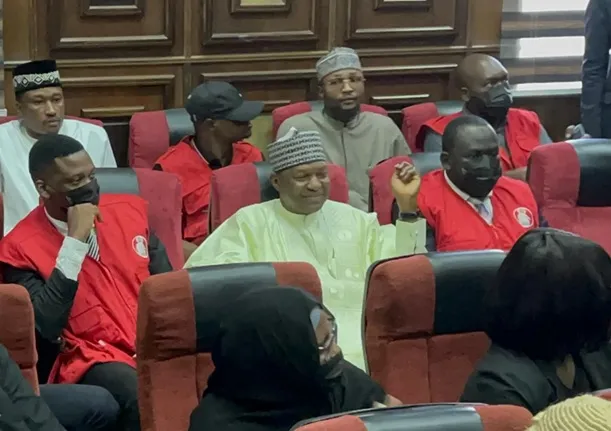The Nigeria Extractive Industries Transparency Initiative (NEITI) has thrown its weight behind the 2024 Tax Reform Bill, currently under consideration by the National Assembly.
According to NEITI, the bill has the potential to revolutionize Nigeria’s tax system, streamlining and broadening its administration and tax base to align with global best practices.
NEITI stated its position on the Tax Reform Bill in a statement released on Tuesday by Obiageli Onuorah, the Acting Director of Communications and Stakeholder Management, a copy of which was obtained by Persecondnews.
She said the agency’s Executive Secretary, Dr. Orji Ogbonnaya Orji, had submitted a memo to the National Assembly leadership and the Chairman of the Presidential Committee on Fiscal Policy and Tax Reforms, outlining NEITI’s stance on the bill.
Orji said the bill could streamline and broaden Nigeria’s tax administration and base to align with global best practices.
He highlighted that the agency’s observations on the 2024 Tax Reform Bill were based on a thorough review of the draft legislation, adding that the review revealed that the bill was the result of extensive research and consultation, leading to innovative provisions that are currently being debated.
The draft tax bill prioritizes several key areas, including the consolidation of legal frameworks, taxation of digital assets, and addressing resident and non-resident taxation.
Additionally, the bill introduces measures to prevent tax evasion, demonstrating a strong commitment to fiscal transparency and efficiency.
These provisions aim to modernize Nigeria’s tax system, streamlining and broadening its administration and tax base to align with global best practices, he explained.
“A detailed review of the Bill revealed that it has the potential to impact positively on revenue generation, household livelihoods, job creation, and overall economic opportunities,” the transparency and accountability agency stated.
As an agency with legitimate interests in the draft legislation, NEITI said: “The public debate generated by the Bill underscored the overwhelming public interest by Nigerians and the need for greater clarity and trust in its provisions after it is finally passed into law”.
Despite the potentials of the Bill, NEITI said its section-by-section review of the draft law revealed its strengths and weaknesses, particularly as they affect the extractive industries, which is the core of NEITI’s specific mandate and thus made several recommendations to bridge the gaps in the implementation of the proposed law.
According to NEITI, Sections 1 and 2 aim to ensure a unified tax legislation across Nigeria for all individuals and legal entities.
However, they do not have explicit guidelines to harmonize federal and state tax laws and clarify roles of sub national governments.
“Careful management of the transition process and robust public awareness campaigns were critical to avoid administrative confusion”.






















Leave a comment